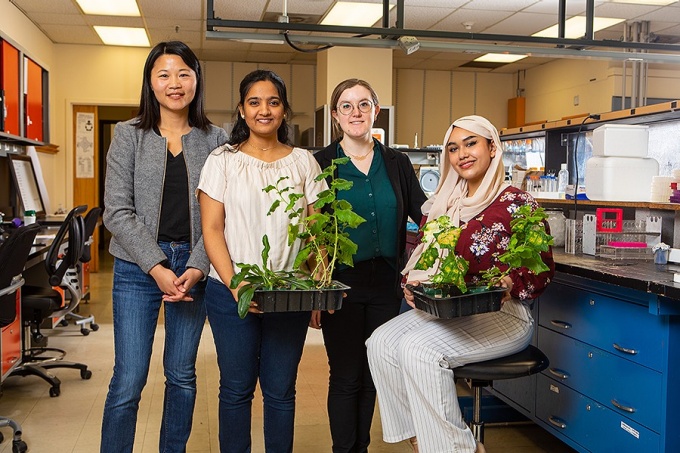UBNow features the work of Zhen Wang

Pictured, from left: Zhen Q. Wang, assistant professor of biological sciences, is leading the project. Lab members include PhD students Indu Raghavan and Emily Carroll, and undergraduate researcher Zahin Hossain, who has since graduated. Photo: Douglas Levere
Dr. Zhen Wang's research project aims to pinpoint the genes that plants use to produce medicinal compounds could enable scientists to explore faster, more efficient methods of manufacturing these substances. This could include genetically engineering microbes to synthesize the drugs. One goal of the project is to decipher how the foxglove plant Digitalis lanata makes compounds called cardenolides, which have pharmaceutical relevance. See feature by UB Now.
Study aims to decipher how plants make cardenolide compounds
Nature's medicine cabinet
Many plants make chemicals that can treat human disease. But how, exactly, do they do this? What genes do plants use to produce the medicinal compounds? Unraveling these biological pathways could lead to better methods of manufacturing drugs, and that’s precisely what UB biologist Zhen Q. Wang is looking to do. Photos: Douglas Levere
Published August 15, 2022







